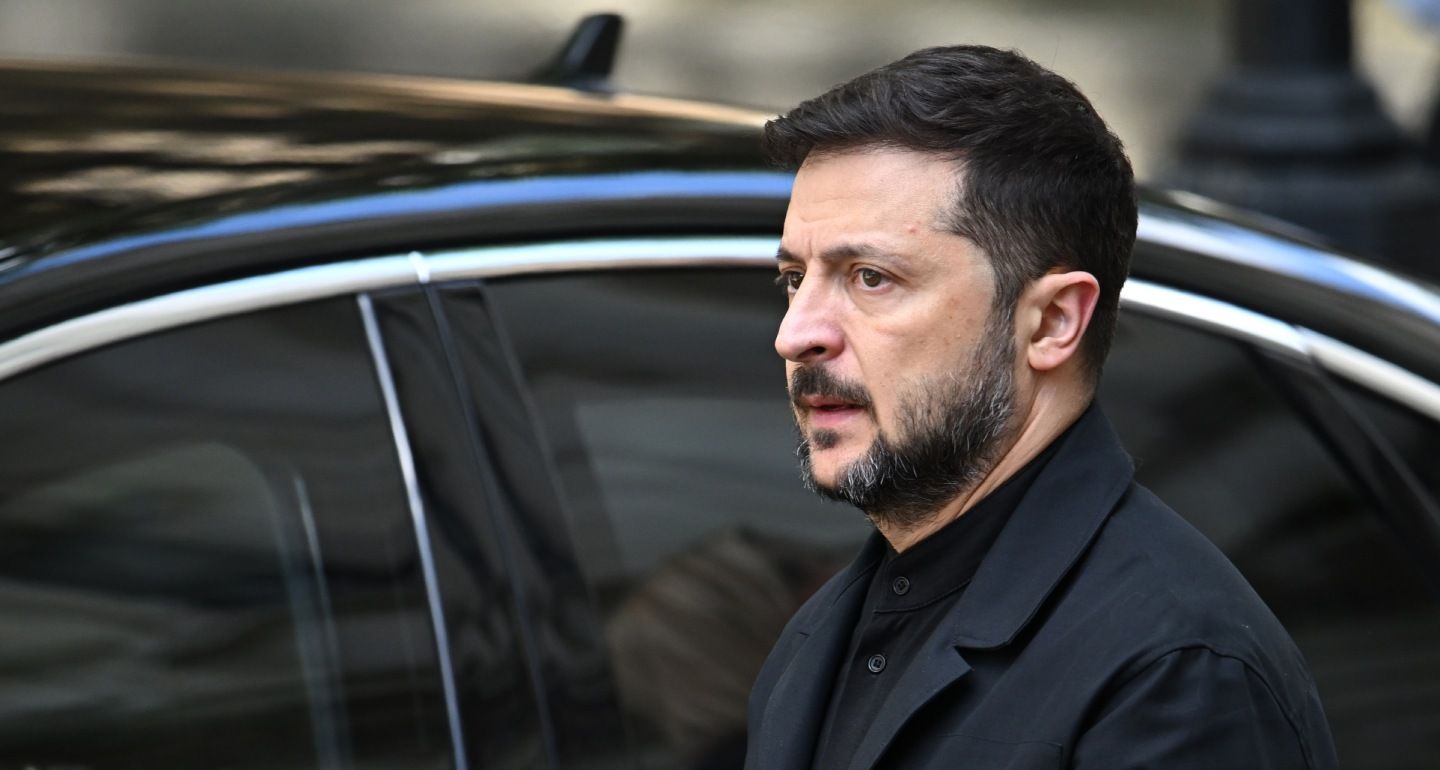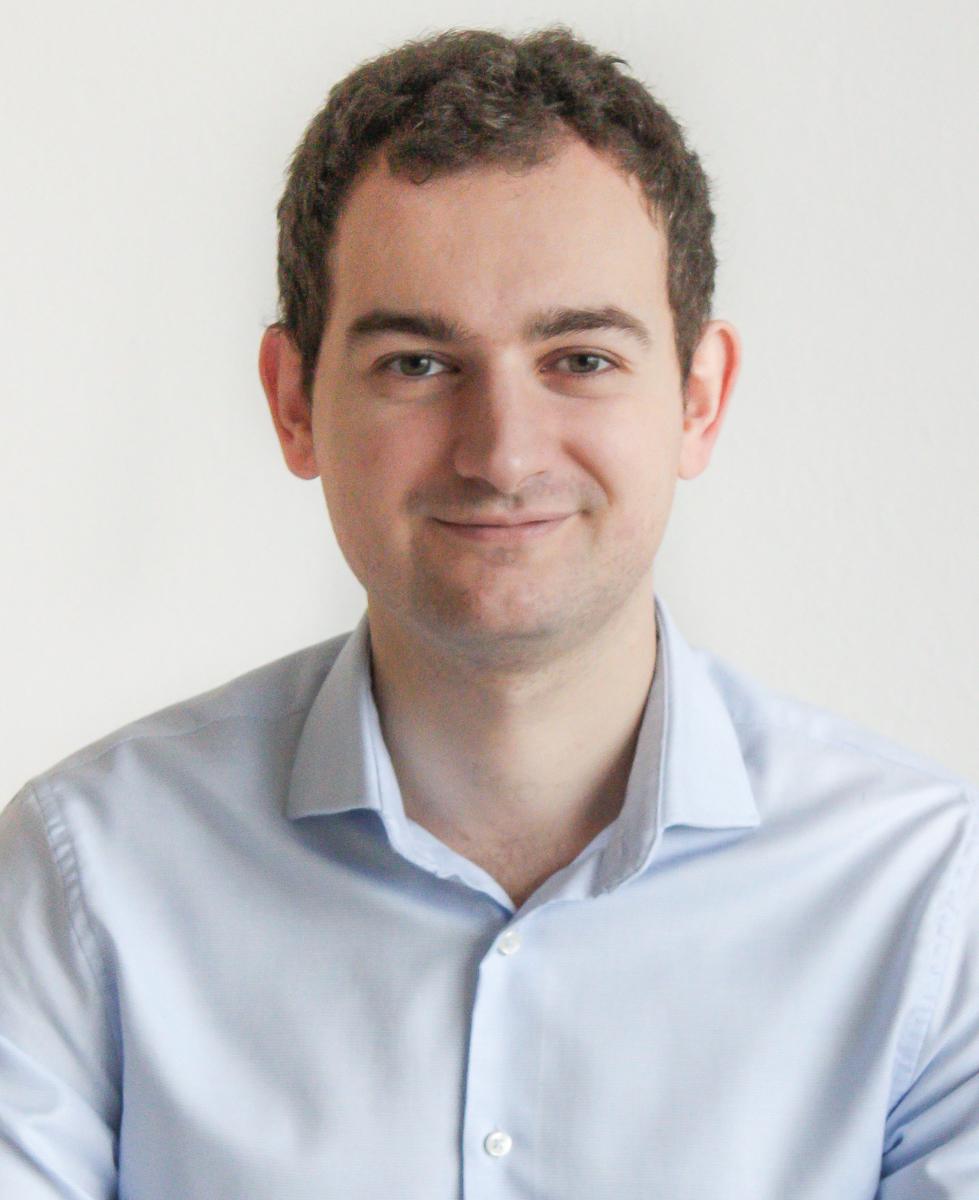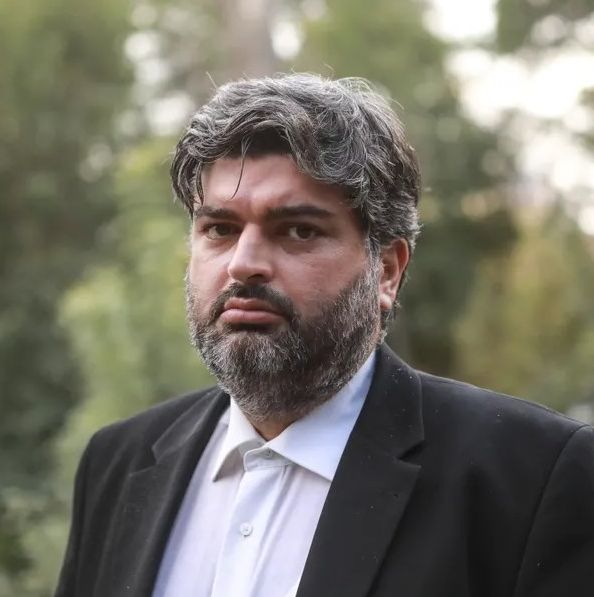For a real example of political forces engaged in the militarization of society, the Russian leadership might consider looking closer to home.
James D.J. Brown
{
"authors": [
"Andrey Pertsev"
],
"type": "commentary",
"blog": "Carnegie Politika",
"centerAffiliationAll": "",
"centers": [
"Carnegie Endowment for International Peace",
"Carnegie Russia Eurasia Center"
],
"englishNewsletterAll": "",
"nonEnglishNewsletterAll": "",
"primaryCenter": "Carnegie Russia Eurasia Center",
"programAffiliation": "",
"programs": [],
"projects": [],
"regions": [
"Russia",
"Ukraine"
],
"topics": [
"Security",
"Foreign Policy",
"Military",
"Political Reform"
]
}
Source: Getty
The Russian leadership’s autocratic worldview makes it believe that competitive elections could destabilize Ukraine, and even end its military resistance.
The Kremlin has been signaling that Russia will not sign a peace agreement with Ukraine while President Volodymyr Zelensky, whom it considers to be an illegitimate ruler, remains in power. Russian officials want to see Kyiv hold presidential elections—not, of course, because they are believers in the democratic process, but because they think that a vote could trigger a political and social crisis in Ukraine. After all, Russian President Vladimir Putin’s understanding of democracy is so warped that he only sees it as a source of instability.
The issue of a meeting between Putin and Zelensky has been one of the biggest stumbling blocks in the ongoing Russia-Ukraine peace negotiations mediated by the United States. Both Zelensky and U.S. President Donald Trump are keen for a meeting to take place. But the Kremlin is desperately trying to remain non-committal. Putin doesn’t want to refuse Trump outright, so he keeps imposing additional conditions that must be met for an encounter to take place—for example, that it must be in Moscow—and stalling for time.
Russian Foreign Minister Sergey Lavrov recently said that even if there were to be a presidential summit, it would be impossible for Putin to sign any legal documents because Zelensky is an illegitimate leader. That the Kremlin has chosen to take this approach reveals a lot about how Putin sees the world.
Claims by Russian officials about Zelensky’s supposed illegitimacy began in earnest after Zelensky’s presidential term limit formally expired last year. Under Ukrainian law, however, Zelensky remains the legitimate leader of his country. Martial law (which was imposed at the beginning of the full-scale invasion and remains in place) forbids any elections from being held in wartime, and the Ukrainian constitution states that a president continues to rule until his successor is elected.
However, the erstwhile legalist Putin is apparently not satisfied by any of these arguments. The Kremlin continues to insist that Ukraine must first choose a legitimate president, and only then can there be a proper peace deal.
The roots of this stubbornness lie in the nature of Russian autocracy. In an autocratic system, everything depends on the one ruler: politics, public opinion, and even the existence of the state itself. Accordingly, the Russian leadership projects this vision of how things work onto other countries, including Ukraine. It believes that if Zelensky were replaced, Ukraine might even cease its military resistance.
Putin rules Russia with the help of political managers, and he well understands their ability to influence elections and manipulate public opinion. This, in turn, means the Kremlin sees free and fair elections not only as highly unpredictable, but also as a time of vulnerability that can be exploited by internal and external enemies. The opposition demonstrations that broke out in Russia after widespread fraud in the 2011 parliamentary elections only entrenched Putin’s views on this topic.
For many years, Putin has opined about “Western efforts” to interfere in Russian elections. At the same time, though, election interference is something close to Putin’s own heart, with Moscow regularly supporting friendly political forces in “unfriendly” democratic countries in the hope that they might win power, or at the very least destabilize the country via protests and political crises.
However, it’s unclear who the Kremlin could back if presidential elections in Ukraine were to take place. One candidate could be Putin’s old chrony, Viktor Medvedchuk, who was released from Ukrainian prison in 2022 in exchange for a group of Ukrainian prisoners of war. He now lives in Russia, supports the Other Ukraine movement, retains a team of political managers, and publishes articles about Ukraine’s future.
There is also former Ukrainian prime minister Mykola Azarov, who fled to Russia in 2014 and now holds forth about “creating a movement to unify all those who want Ukraine to have a normal trajectory of development.” And then there is former president Viktor Yanukovych, another fugitive from the 2014 Euromaidan revolution. Yanukovych spoke publicly for the first time in three years on September 1 when he supported claims made by Putin at a recent meeting of the Shanghai Cooperation Organisation that the war in Ukraine started as a result of a coup in 2014 and attempts by the West to get Kyiv to join NATO.
It's difficult to judge whether or not the Kremlin actually believes any of these men could be a political success in today’s Ukraine. But the reality on the ground is unambiguous: they could not. There is only one figure who could be considered “pro-Russian” included in Ukrainian surveys about possible presidential elections: parliamentary deputy Yuriy Boyko, who was energy minister and deputy prime minister under Yanukovych—and he polls at about 1.5 percent.
Given the lack of support for any “pro-Russian” politicians in Ukraine, it would be a more sensible tactic for the Kremlin to try to destabilize the country more generally. A myth of unity under one ruler is a key part of the Putinist system, and the authoritarian worldview dictates that competitive elections undermine this unity. The Kremlin likely believes that Ukrainian elections could weaken support both for the war, and for Ukraine’s current rulers within certain important social groups—for example, the military.
The Kremlin might also be calculating that some Ukrainian regions, which it still thinks of as pro-Russian (primarily the Kharkiv and Odesa regions) would dispute the outcome of elections. The Russian leadership remembers only too well how a Ukrainian political crisis in 2014 handed it the opportunity to annex Crimea and back a rebel movement in eastern Ukraine. But Russia’s full-scale invasion in 2022 showed just how radically things had changed. The Kremlin’s hopes that Ukrainians would welcome the Russian army proved to have been a grave miscalculation.
After three-and-a-half years of brutal fighting, there is even less basis to believe there is any significant pro-Russian sentiment in Ukrainian society. Polling suggests Zelensky’s main electoral rival would be Valery Zaluzhny, the former commander of the Ukrainian armed forces: hardly someone who can be suspected of harboring any pro-Russian sympathies.
Nevertheless, the Russian leadership has gotten used to trusting its own convictions over the facts on the ground—however clear those facts might appear to others. For this reason, the Kremlin continues to believe that presidential elections could weaken Ukraine from within, and will keep insisting that a vote takes place as soon as possible.
Carnegie does not take institutional positions on public policy issues; the views represented herein are those of the author(s) and do not necessarily reflect the views of Carnegie, its staff, or its trustees.
For a real example of political forces engaged in the militarization of society, the Russian leadership might consider looking closer to home.

James D.J. Brown
The risk posed by Lukashenko today looks very different to how it did in 2022. The threat of the Belarusian army entering the war appears increasingly illusory, while Ukraine’s ability to attack any point in Belarus with drones gives Kyiv confidence.

Artyom Shraibman
Instead of a guaranteed ally, the Kremlin now perceives Armenia as yet another hybrid battlefield where it is fighting the West.

Mikayel Zolyan
China has found a unique niche for itself within the global security ecosystem, eschewing military alliances to instead bolster countries’ internal stability using law enforcement. Authoritarian regimes from the Central African Republic to Uzbekistan are signing up.

Temur Umarov
What should happen when sanctions designed to weaken the Belarusian regime end up enriching and strengthening the Kremlin?

Denis Kishinevsky